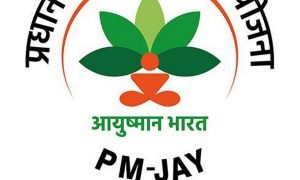Over 1 crore central government employees and pensioners are eagerly awaiting the formation of 8th Central Pay Commission, which will submit its recommendations to the government after taking into consideration various factors related to government employees’ remuneration and other benefits.
8th Pay Commission: In the latest development post Lok Sabha polls 2024, the Centre has received a letter from the All India Railwaymen’s Federation (AIRF) regarding setting up 8th Pay Commission, which will look into among other things the prospects of revising salary and pensionary benefits of central government employees.
Shiv Gopal Mishra, general secretary of All India Railwaymen’s Federation, the largest trade union of Indian railways workers, has written a letter to the Cabinet Secretary, Government of India, seeking an immediate constitution of 8th Central Pay Commission for “revising the pay/allowances/pension and other benefits” of central government employees.
Over 1 crore central government employees and pensioners are eagerly awaiting the formation of 8th Central Pay Commission, which will submit its recommendations to the government after taking into consideration various factors related to government employees’ remuneration and other benefits.
Read More: How to improve your credit score? Know it from experts
When will the 8th Pay Commision be set up?
With a gap of 10 years since the implementation of 7th Pay Commission, the next pay commission should be implemented from 1st January 2026. The Centre generally follows a gap of 10 years between the implementation of two different pay commissions. But, the Centre has remained tight-lipped so far over the matter of setting up of the next pay commission. With the Lok Sabha elections now over and Modi 3.0 at the helm, the buzz is growing stronger now regarding the formation of 8th Pay Commission.
In its letter to the government, the AIRF said that the 7th Central Pay Commissions recommendations were implemented by the government w.e.f. 1st January 2016. However, the demand for revising the minimum pay to Rs 26,000 per month from January 2016 was turned down, it added. The minimum salary of Rs 26,000 was calculated on the basis of the various components of the ILC norms and Dr. Aykroyd Formula etc.
What was AIRF’s demand for a minimum salary?
The union in its letter also wrote that it has also put forth its points before the CPC that the minimum pay proposed by the Staff Side of National Council (JCM) is still on the lower side. “Unfortunately, all our arguments were rejected by the 7th CPC without any basis and recommended for Rs 18,000 as minimum pay….”
As per the definition of minimum wages, it is the minimum amount of remuneration that “an employer is required to pay wage earners for the work performed during a given period, which cannot be reduced by collective agreement or an individual contract”.
On the fitment factor, the union said that while the staff side demanded that the fitment factor should be 3.68%, the 7th CPC recommended only for 2.57% which the government straightaway agreed without holding any negotiation with the staff side which usually takes place.
Aggrieved by the adverse recommendations of the 7th CPC and the acceptance of the same by the government without holding any discussion with the staff side and without considering the proposals given by the staff side, the constituent organizations of the National Council served a strike notice on the government demanding for revision of minimum pay and fitment factor, it said.
Read More: Senior Citizen Fixed Deposits offering highest interest rates in June – Compare latest rates
What is fitment factor?
The fitment factor is a key formula that helps in arriving at the salaries of employees and Pay Matrix under the 8th Pay Commission. Its primary role will be adjusting the current 7th CPC Pay in alignment with the proposed 8th CPC Pay Scale.
The 7th Pay Commission introduced a fitment factor of 2.57 times. This resulted in an average salary increase of approximately 14.29% for employees in 2016. Consequently, the minimum pay scale was set at Rs 18,000.
AIRF charges against the government
It said that there have been no positive steps taken by the government to negotiate with the staff side and to increase the minimum pay and the fitment factor. The government itself says that the inflation is in the range of 4% to 7% on average, the letter said. In the post-Covid time, the inflation is higher than pre-Covld levels, the union stressed.
“If we compare the retail prices of essential commodities and goods which are required for daily life from 2016 to 2023 they have increased by over 80% as per the local market, but we are provided by only around 46% Dearness Allowance (DA) as on 1st July 2023. Hence, there is a gap between the actual price rise and DA provided to the employees and pensioners.”
To attract qualified and talented candidates to the government service, time has now come to immediately constitute the 8th Central Pay Commission and “to revise the pay scales/allowances/pension and other benefits of the central government employees through mutual discussions and settlements. Therefore, the staff side demands that the government of India may immediately constitute the 8th Central Pay Commission,” the AIRF said.





































